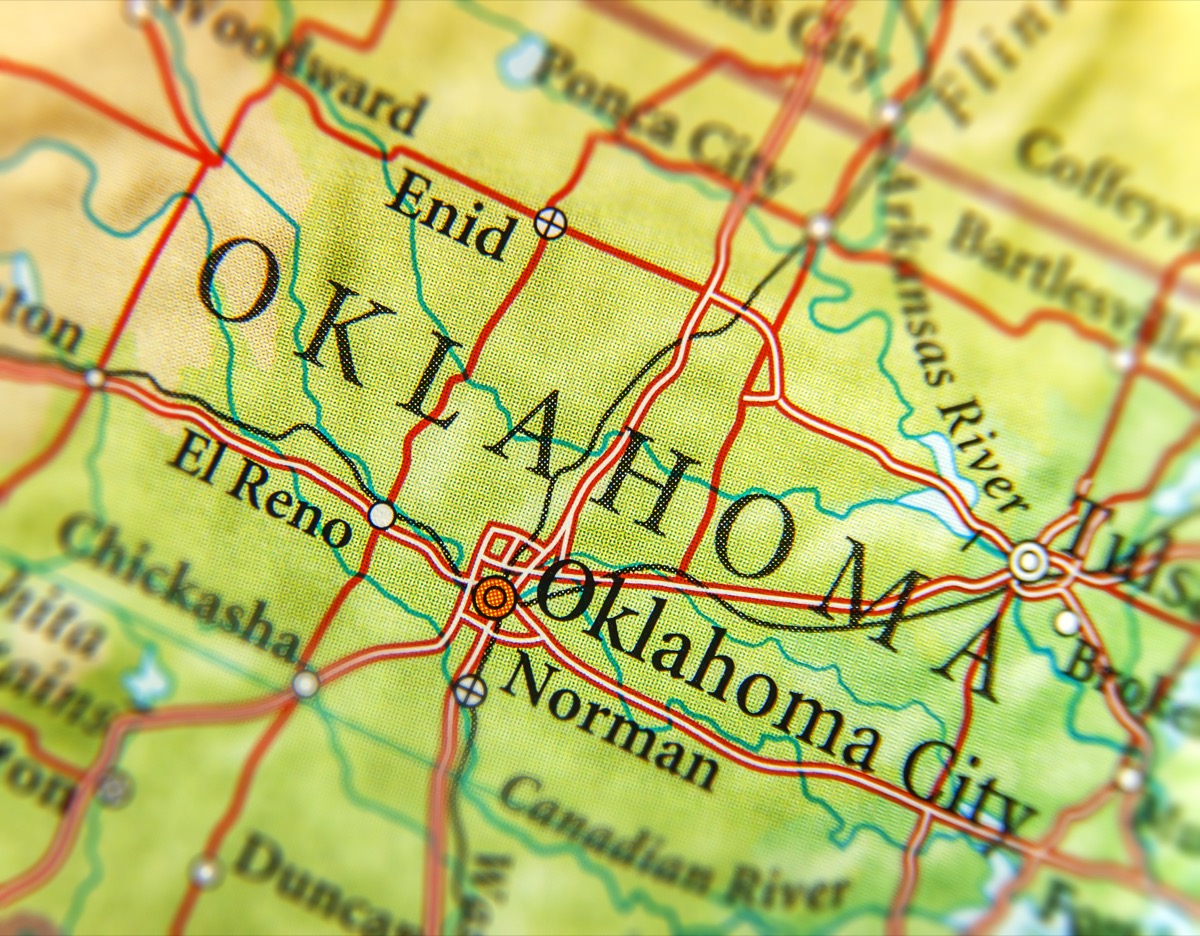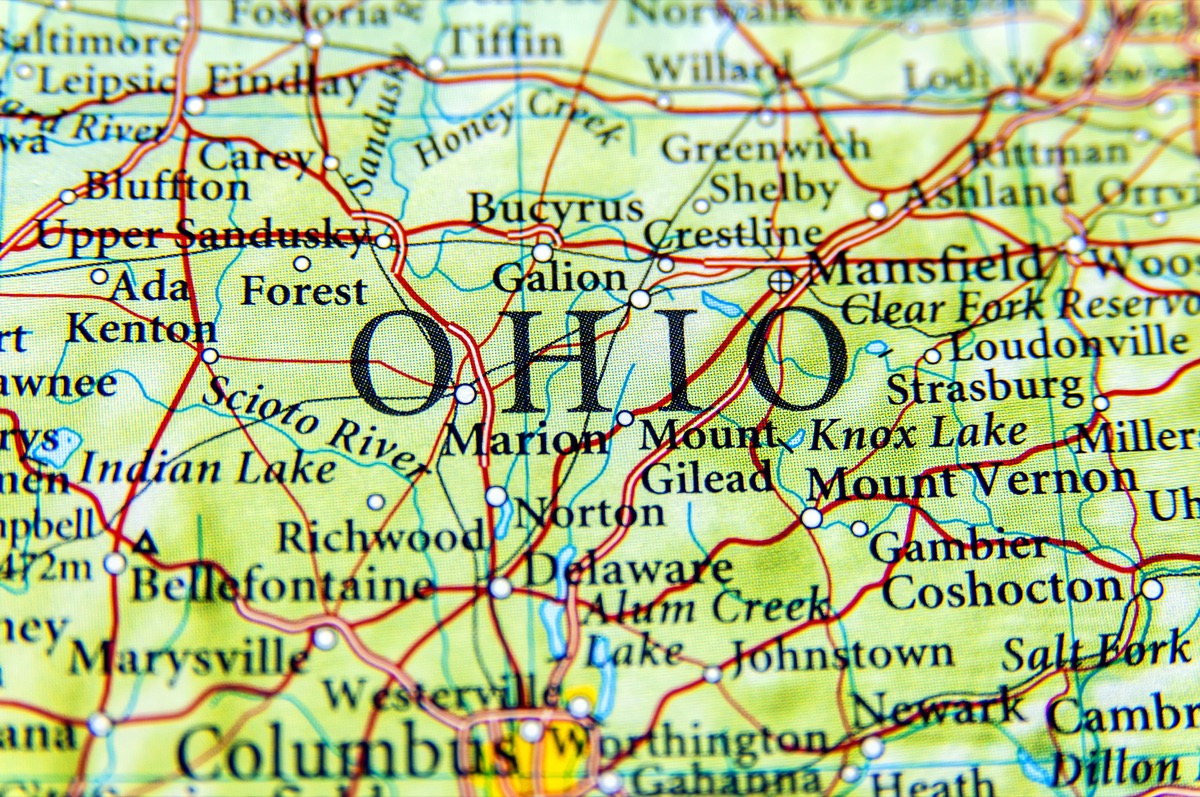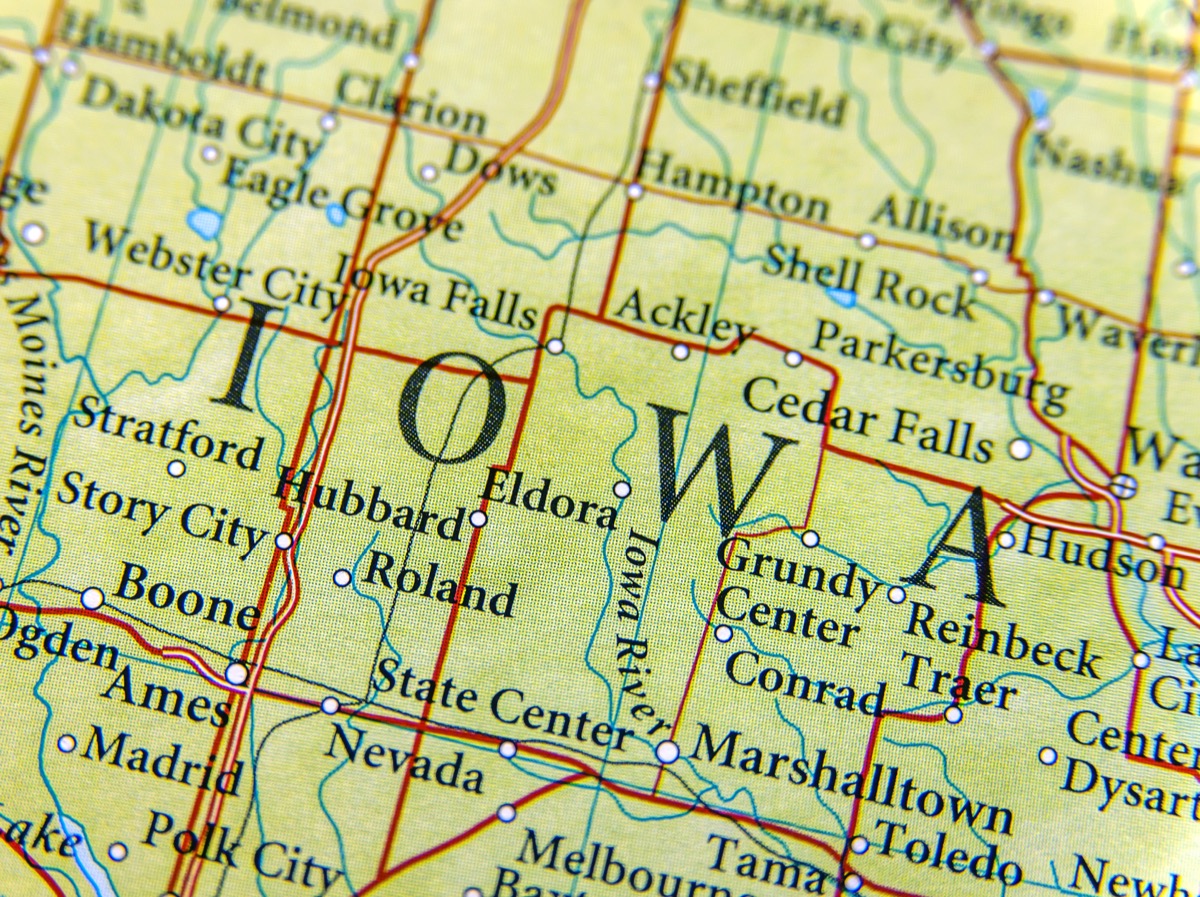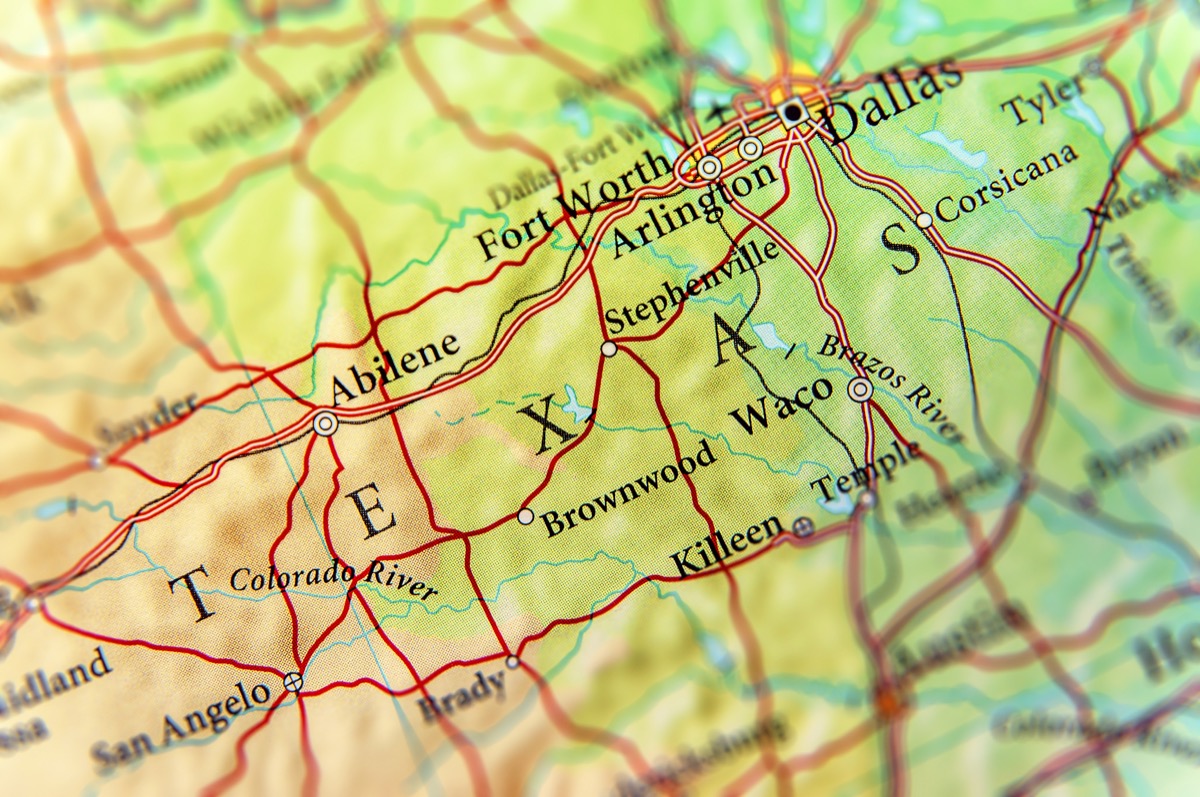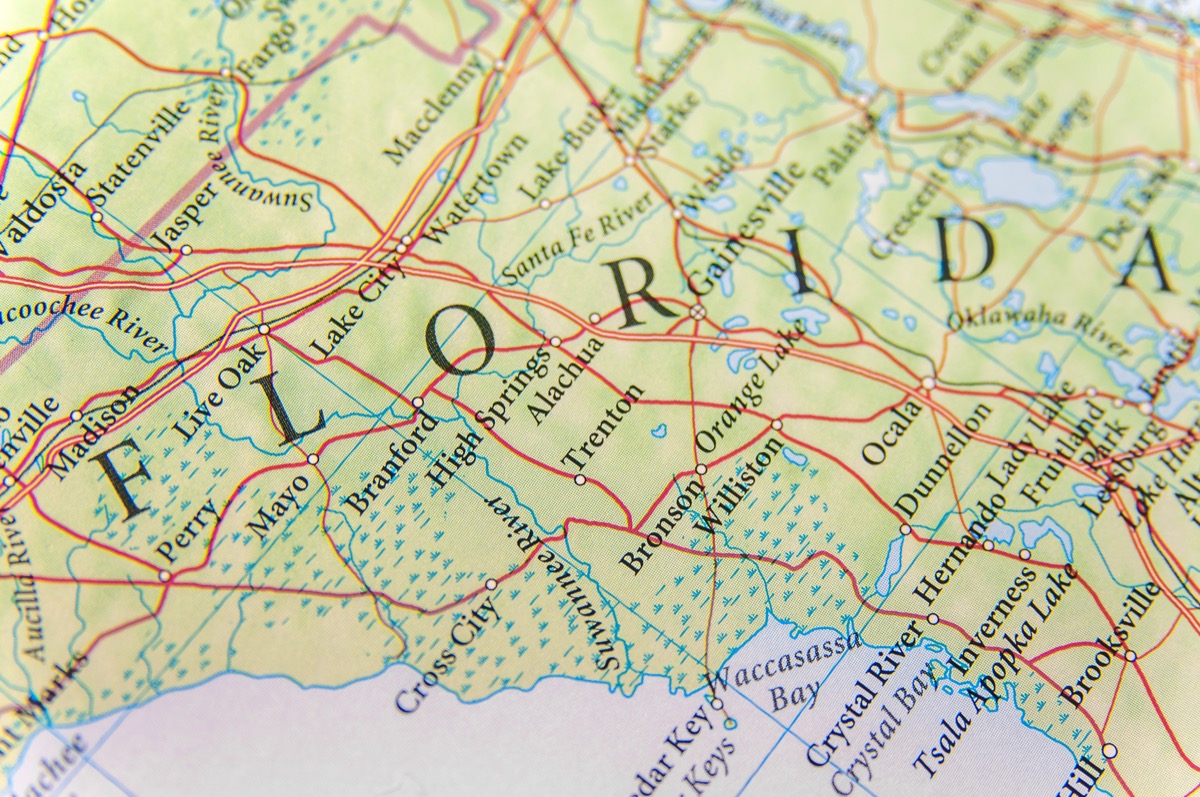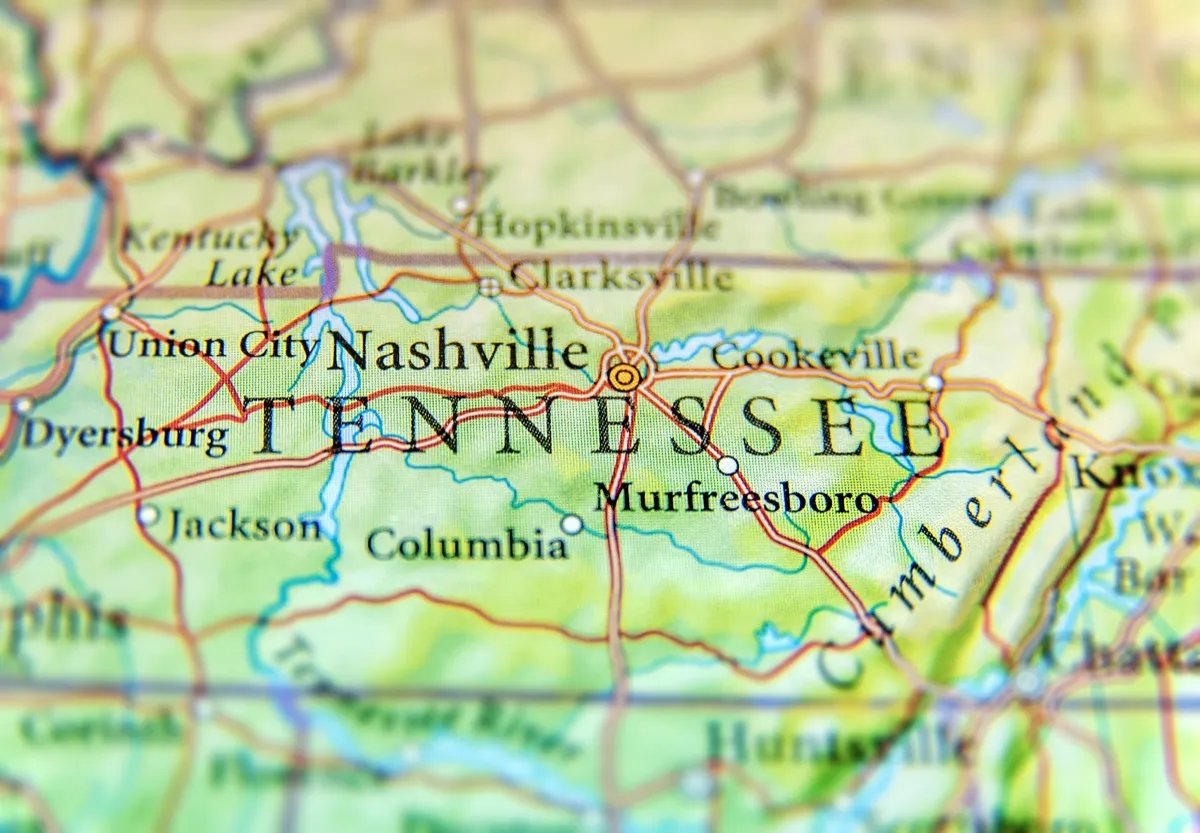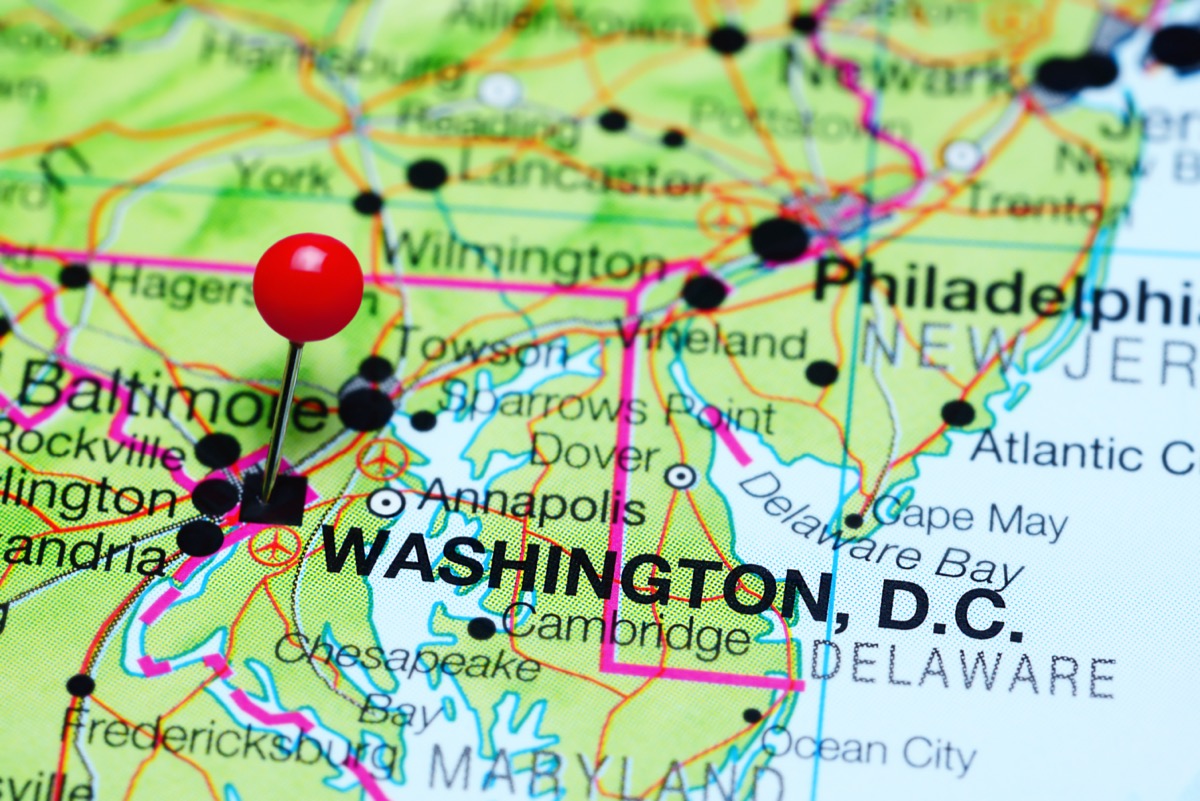On May 21, Gov. Kevin Stitt signed a bill into law allowing curbside sales and delivery of beer, wine, and spirits in Oklahoma. “During the COVID-19 pandemic, the Alcoholic Beverage Laws Enforcement Commission (ABLE) allowed restaurants, grocery and liquor stores to serve customers through curbside service and delivery,” Sen. Roger Thompson, who helped write the measure, told KOCO news. “I’ve talked to many citizens who really appreciated the convenience and didn’t want to see it end. This measure will allow that service to continue. It’s another important step in continuing to modernize Oklahoma’s liquor laws, offering more choices to consumers.” And for more new state mandates, check out This State Just Made a Major Change After a Record Coronavirus Spike. In April, the Ohio Liquor Control Commission ruled that restaurants and bars could deliver and sell to-go alcohol for 120 days. (Under that temporary change, people were able to buy two pre-packaged drinks per delivery meal.) However, on June 10, Ohio’s House of Representatives passed a bill by an 84-8 vote that would permanently allow to-go alcohol. The bill is now headed to the state’s Senate for final approval. On June 13, Iowa legislature made cocktails to-go permanently legal for home consumption, pending Gov. Kim Reynolds’ official sign-off. “The path to recovery following COVID-19 will last long beyond the end of the pandemic for Iowa’s hospitality businesses,” Dale Szyndrowski, vice president of State Government Relations for the Distilled Spirits Council of the United States (DISCUS), said in a statement. “Making consumer-friendly measures like cocktails to-go permanent provides local bars, restaurants, and distilleries with a sustained source of much-needed revenue as they get back on their feet.” And for more up-to-date information, sign up for our daily newsletter. By now, restaurants in the Lone Star State are operating at 75 percent capacity. Even so, Texas Gov. Greg Abbott has let the liquor-to-go law stand. On June 19, the Texas Restaurant Association sent a letter asking him to continue allowing the change. The next day, Abbott took to Twitter to announce his support to see to-go alcohol sales permanently legalized in the second-largest state in the U.S. Then, on June 21, State Rep. Tan Parker tweeted that he would file a bill to do so. In early March, as the coronavirus pandemic first hit the United States, Florida Gov. Ron DeSantis signed an executive order that included permission for alcohol-to-go sales. During a news conference on May 5, he suggested making the order permanent. “I allowed [restaurants] to deliver alcohol, I think that’s been pretty popular,” DeSantis said. “Maybe we’ll have the legislature change the law on that.” A grassroots movement—called Drinks To-Go Forever in Tennessee—has swept this Southern state. The initiative includes a change.org petition and a public Facebook group to gather statewide support. Now, other groups, such as the Memphis Restaurant Association and Hospitality TN, are working together with state lawmakers to make to-go alcoholic beverages permanently legal. On June 3, the Shelby County Commission passed a draft resolution to ask Gov. Bill Lee to extend the current alcohol order as well. And if you’re curious about the safest states, check out These Are the Only Three States on Track to Contain Coronavirus.ae0fcc31ae342fd3a1346ebb1f342fcb Beer, wine, and cocktails in the nation’s capital are currently allowed for carry out or delivery. However, that benefit could become permanent, thanks to Mayor Muriel Bowser, who included the measure in the Alcoholic Beverage Sales and Delivery Amendment Act, within the 2021 fiscal budget. The proposal also states that alcohol could be served and sold for longer hours during the day. The provision is pending review by the D.C. Council, but so far, 775 businesses have been approved to join the program, according to Acting Deputy Mayor for Planning and Economic Development John Falcicchio.
